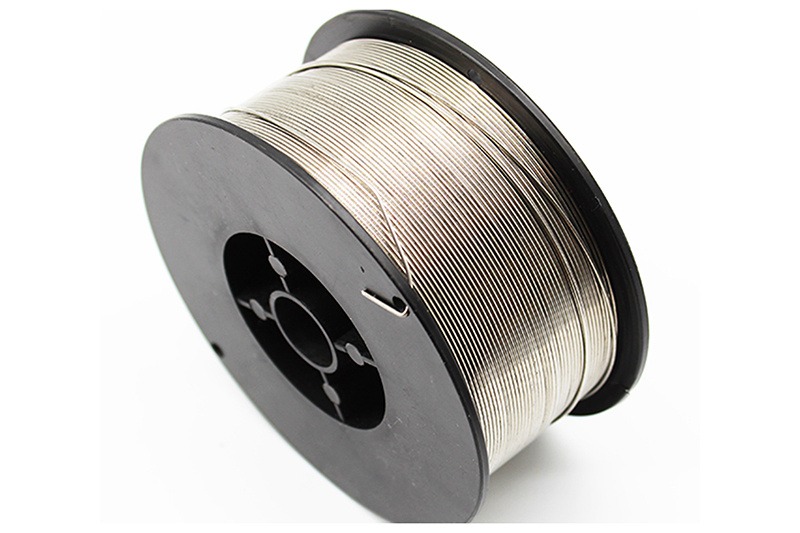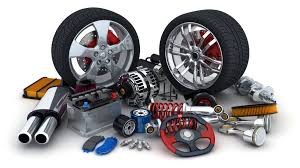
When it comes to welding materials that need to endure extreme environments—whether it’s saltwater exposure, acidic conditions, or high temperatures—Monel Welding Wire is often the preferred choice. This high-performance alloy wire offers excellent corrosion resistance, strength, and durability, making it invaluable across various demanding industries.
Introduction to Monel Welding Wire
Monel Welding Wire is a nickel-copper alloy-based filler material used in welding operations requiring high resistance to corrosion, especially in marine and chemical environments. It is widely used to weld Monel base metals and other nickel-based alloys.
What sets Monel welding wire apart is its ability to retain strength and integrity under extreme operating conditions. It combines excellent mechanical properties with exceptional resistance to chemical degradation—making it indispensable in high-performance applications.
Understanding Monel Alloys
Monel is a group of nickel alloys, primarily composed of nickel (approximately 65–70%) and copper (20–29%), along with small amounts of iron, manganese, carbon, and silicon.
Monel alloys are named after Ambrose Monell, the American engineer who created the material in the early 20th century. The ‘Monel’ trademark is now owned by Special Metals Corporation.
There are several types of Monel alloys, such as:
-
Monel 400 – Known for its toughness and corrosion resistance
-
Monel K-500 – An age-hardened version offering greater strength
Monel welding wire is usually manufactured using these alloy grades, ensuring compatibility with a wide range of welding projects.
Composition and Grades of Monel Welding Wire
The composition of Monel Welding Wire can vary depending on the alloy grade. Here are the common grades:
Monel 60 (ERNiCu-7)
This is the most widely used welding wire grade for Monel.
Chemical Composition:
-
Nickel: 63–70%
-
Copper: 20–29%
-
Iron: 2.5% max
-
Manganese: 2% max
-
Carbon, Silicon, Sulfur: trace elements
It’s primarily used for welding Monel 400 and Monel R-405, and also finds compatibility with other nickel-copper alloys.
Other Grades Include:
-
Monel K-500-based wire for higher strength applications
-
Custom blends tailored to specific operational needs
Key Properties of Monel Welding Wire
1. Corrosion Resistance
Monel Welding Wire is extremely resistant to saltwater, acids, and alkalis. This makes it ideal for marine, offshore, and chemical industry applications.
2. High Strength and Toughness
Even at sub-zero temperatures, Monel retains its mechanical integrity. It performs well in cryogenic and high-temperature environments.
3. Thermal Stability
It can withstand continuous temperatures up to 600°C (1112°F), making it suitable for thermal cycling applications.
4. Good Weldability
Despite its hardness, Monel Welding Wire has excellent flow characteristics, resulting in smooth, strong, and reliable welds.
Applications of Monel Welding Wire
The versatility of Monel makes it ideal for a wide range of applications, particularly where corrosion and wear are a concern.
1. Marine Industry
-
Boat hulls
-
Propeller shafts
-
Seawater piping
-
Heat exchangers
Its resistance to seawater corrosion makes it the go-to material for ocean-facing structures.
2. Chemical Processing
-
Valves and pumps
-
Heat exchangers
-
Reactors
-
Distillation columns
The non-reactive nature of Monel Welding Wire ensures safe and stable performance in acidic environments.
3. Oil & Gas Industry
-
Drilling equipment
-
Offshore platforms
-
Downhole components
The wire’s toughness and anti-corrosion properties are ideal for oil exploration and extraction setups.
4. Aerospace Industry
-
Jet engine components
-
Hydraulic tubing
-
Exhaust systems
High-temperature stability makes it a good fit for aviation components subjected to thermal extremes.
Advantages of Using Monel Welding Wire
Let’s dive into some of the key benefits of choosing Monel as your welding wire material:
1. Longevity
Monel welds can last for decades without major degradation, reducing maintenance and replacement costs.
2. Multi-Environment Use
One of the only welding materials effective in both oxidizing and reducing environments.
3. Excellent Compatibility
Monel Welding Wire works well with dissimilar metal joints, especially other nickel and copper alloys.
4. Low Thermal Expansion
Its lower expansion rate compared to steel reduces stress and cracking during heating/cooling cycles.
5. Non-Magnetic
Useful in sensitive instrumentation and applications where magnetic interference must be minimized.
Monel vs. Other Welding Wire Materials
Here’s a quick comparison of Monel with other commonly used welding wires:
| Property | Monel Welding Wire | Stainless Steel Wire | Inconel Wire | Aluminum Wire |
|---|---|---|---|---|
| Corrosion Resistance | Excellent | Good | Excellent | Moderate |
| High Temp Resistance | Very High | Moderate | Very High | Low |
| Strength | High | Moderate to High | High | Low to Moderate |
| Weldability | Good | Excellent | Moderate | Excellent |
| Cost | High | Lower | Higher | Low |
Conclusion
In high-performance environments where failure is not an option, Monel Welding Wire stands out as a reliable and resilient solution. Its excellent corrosion resistance, high-temperature stability, and mechanical strength make it the ideal choice for industries like marine, oil & gas, chemical processing, and aerospace.
Whether you’re fabricating pressure vessels or building subsea pipelines, Monel welding wire offers long-term durability and peace of mind. While it may come at a higher cost, the performance advantages far outweigh the initial investment.





